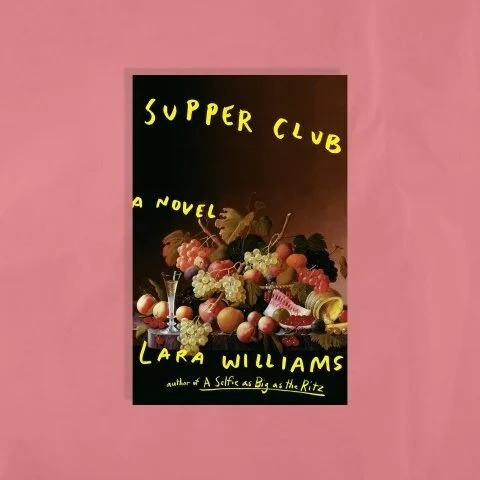M&B Book Review: The Supper Club
The Supper Club, a stunning debut from Lara Williams, was my first choice for 2020 and I'm so glad I started off the year and decade with it. It caught my eye with its stunning Dutch Realism still life cover, but its greater impact on me was as a story of unapologetic female power. I could picture it coming to life at the hands of Sophia Coppola or Greta Gerwig. For fans of Sally Rooney's Conversations with Friends or Lena Dunham’s Girls, the Supper Club will feel cut from a similar cloth, albeit with aspects reminiscent of the 2014 film by Lone Scherfig, the Riot Club - mostly the decadence and havoc. (Side Note: I love that all the authors and directors in this paragraph are women who tell stories of equally complicated yet simple female lives. Check them out!).
The novel centers around two friends, Roberta and Stevie, who's slightly imbalanced and generally problematic friendship is built on the stagnation they have both found in their early adult lives, a few years out of school. The novel bounces back and forth between Roberta's present life as a twenty-something, and her more isolating university experience where cooking became a lifeline, a mechanism for a sense of control, and an outlet.
In present day, after a particularly inspiring Kashmiri curry dinner with Stevie’s artist friends, an idea blooms in Roberta’s mind to formalize and serialize a secret dinner society. Stevie’s contribution is pivotal to the project’s evolution and mission - it should be a living art project where women are encouraged to respond to their appetites; to expand in their lives and in their jeans.
In the end, Roberta and Stevie lead a troupe of women who's lives have unfolded in a variety of ways with the same outcome - they feel a shrinking of self, a sense of powerlessness and a desire to reclaim space. It starts with the Supper Club - one that would encapsulate the complexities of female self-realization and self-love. It explores the fine line it takes to navigate expectations of femininity and the desire to define that concept for yourself. The radical act of taking up more space, both physically and metaphysically, as a woman and the gross sense of discomfort that can provoke as you make your way through the world. It is about allowing yourself to have an appetite - for food and for life.
One of my favourite parts of the book was seeing how Williams took the character of Roberta full circle. You could see her evolution, but also how certain relationships shifted her sense of self, kicked her axis of power off balance so completely. She feels like a real person - with baggage and complexes, which in some cases she then sheds. In one case, she meets up with a guy who could be considered her ex-boyfriend, although probably better described as a situationship - that cruel middle ground we’ve all accepted and felt the terrible pull before we learned better. This meeting ends up being the ultimate reclaiming of power - a kickass fuck-you to a mansplaining, casually-cruel ex done with a bahn mi sandwich. I won't give away more than that. It encapsulates so much that seethes beneath the surface for so many women - anger at the polite accommodations we make, fury at minimizing ourselves to allow space for others to expand, deference to the wonkiest of social orders where we aren't allowed to be flawed. Regardless of whether these limitations are self imposed or learned or forced upon us as a role to play, I saw so much truth in this scene and felt it so fully as a moment of redemption for Roberta, a victory of self empowerment and boundary setting.
In the end, this isn’t a book with a wild storyline or unprecedented topics but what I loved about it was that it was honest. It captures seemingly trivial yet incredibly humanistic, instinctual feelings and life moments. It felt like a gentle reminder as a woman to relax those inclinations to diminish yourself both metaphorically and physically - let that gut hang out and take up more space sister!
Trigger warning: sexual assault, self harm, verbal abuse



